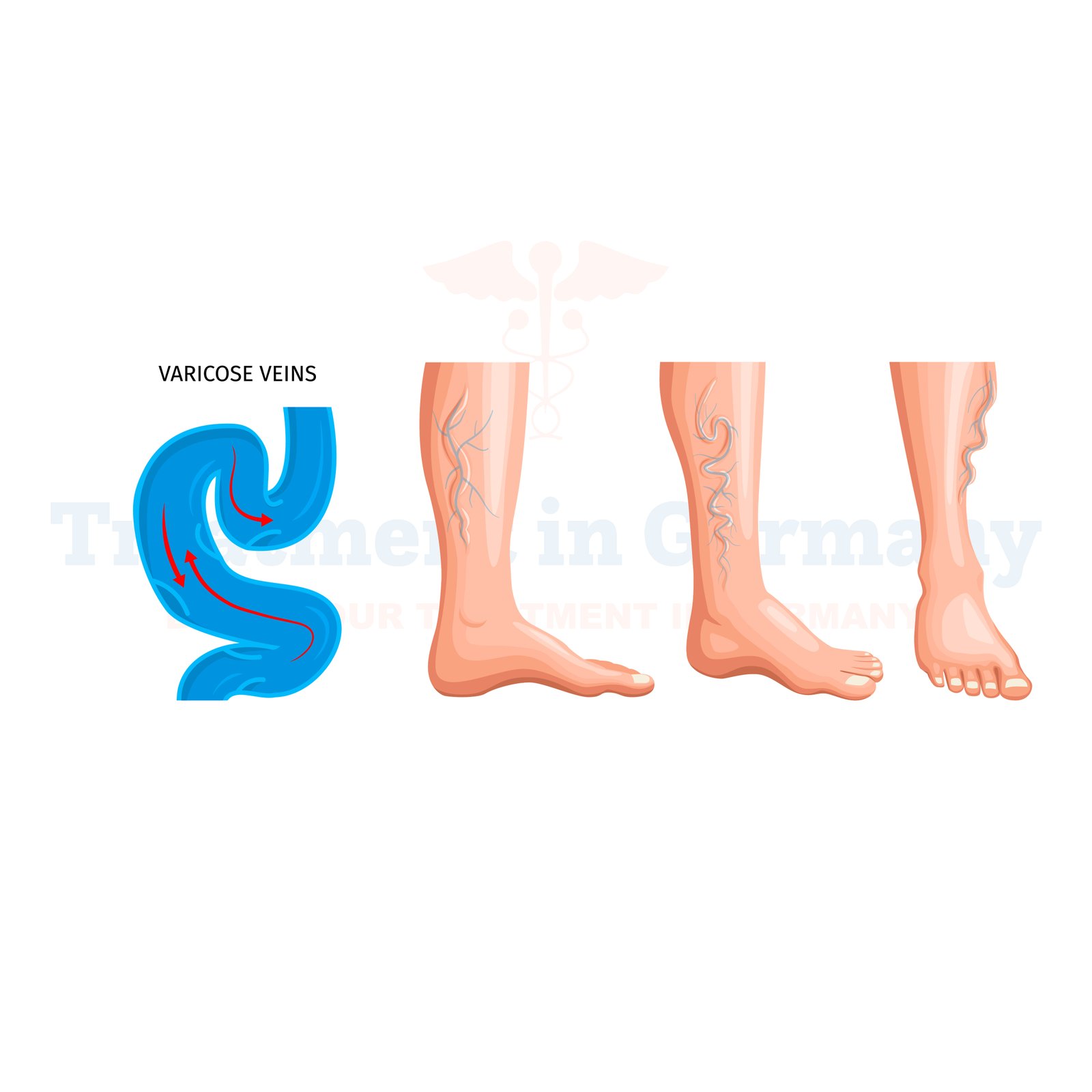What is Varicose Veins:
Varicose veins are swollen, twisted veins that often appear blue or dark purple. They usually occur in the legs and can be caused by weakened valves and vein walls, leading to poor blood circulation.
While they are generally not a serious medical condition, they can cause discomfort and may indicate an underlying circulatory problem.
Side effects of Varicose Veins:
Varicose veins can cause various symptoms, including:
How is Varicose Veins diagnosed?
Diagnosing varicose veins typically involves a physical examination by a healthcare professional, where they will examine the affected area and may ask about symptoms. In some cases, further tests such as ultrasound imaging may be conducted to assess the extent of the condition and identify any underlying issues with the veins.
Potential treatments of Varicose Veins:
1. Compression Therapy: Wearing compression stockings can help improve blood circulation and alleviate symptoms associated with varicose veins. These stockings apply pressure to the legs, helping to support vein function and reduce swelling.
2. Sclerotherapy: This minimally invasive procedure involves injecting a solution directly into the affected veins, causing them to collapse and fade away over time. Sclerotherapy is often used for smaller varicose veins and spider veins.
3. Endovenous Laser Therapy (EVLT): EVLT is a procedure that uses laser energy to heat and seal off problematic veins. It is effective for larger varicose veins and is performed under local anesthesia on an outpatient basis.
4. Vein Stripping and Ligation: In more severe cases, surgical procedures such as vein stripping and ligation may be recommended to remove or close off the affected veins. This option is typically reserved for cases where other treatments have been unsuccessful or for individuals with complications.
5. Radiofrequency Ablation (RFA): Similar to EVLT, RFA uses heat energy to close off varicose veins. It is a minimally invasive procedure performed under local anesthesia and offers a high success rate with minimal discomfort and downtime.
👉 Contact us for further information and receive a complimentary consultation.


.webp)
 (1).webp)

.webp)
 (1).webp)


.webp)
 (1).webp)

.webp)
 (1).webp)
